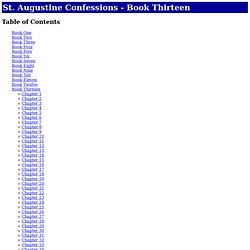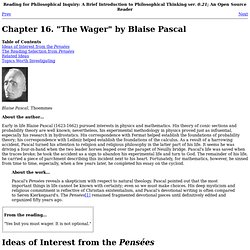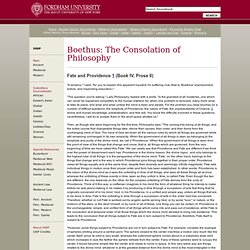

St. Augustine Confessions - Book Thirteen. The mysteries and allegories of the days of creation.

Augustine undertakes to interpret Gen. 1:2-31 in a mystical and allegorical fashion so as to exhibit the profundities of God's power and wisdom and love. He is also interested in developing his theories of hermeneutics on his favorite topic: creation. He finds the Trinity in the account of creation and he ponders the work of the Spirit moving over the waters. In the firmament he finds the allegory of Holy Scripture and in the dry land and bitter sea he finds the division between the people of God and the conspiracy of the unfaithful. He develops the theme of man's being made in the image and likeness of God. 1. 2.
For what did the heaven and earth, which thou didst make in the beginning, ever deserve from thee? 3. [of Light] which is equal to thee? 4. 5. 6. [lower] heaven of that [higher] heaven, which afterward was made between water and water.[514] 7. 8. To whom shall I tell this? 9. 10. Why, then, is this said of thy Spirit alone? Rhetological Fallacies.
New Atheists. Apology by Plato. Philosophy: The Classics Podcast by Nigel Warburton. Epistmology of Religion. Ontological Argument. Cosmological Argument. Teleological Argument. The Wager by BlaisePascal. About the author… Early in life Blaise Pascal (1623-1662) pursued interests in physics and mathematics.

His theory of conic sections and probability theory are well known; nevertheless, his experimental methodology in physics proved just as influential, especially his research in hydrostatics. His correspondence with Fermat helped establish the foundations of probability theory; his correspondence with Leibniz helped establish the foundations of the calculus.
As a result of a harrowing accident, Pascal turned his attention to religion and religious philosophy in the latter part of his life. It seems he was driving a four-in-hand when the two leader horses leaped over the parapet of Neuilly bridge. Internet History Sourcebooks Project. Fate and Providence 1 (Book IV, Prose 6) "The question you're asking," Lady Philosophy replied with a smile, "is the grandest of all mysteries, one which can never be explained completely to the human intellect, for, when one problem is removed, many more arise to take its place, and arise and arise unless the mind is keen and awake.

For the problem you raise touches on a number of difficult questions: the simplicity of Providence, the nature of Fate, the unpredictability of Chance, 2 divine and human knowledge, predestination, and free will. You know the difficulty involved in these questions; nevertheless, I will try to answer them in the short space allotted us. " Then, as though she were beginning for the first time, Philosophy said, "The coming-into-being of all things, and the entire course that changeable things take, derive their causes, their order, and their forms from the unchanging mind of God.
"However, some things subject to Providence are not in turn subject to Fate.